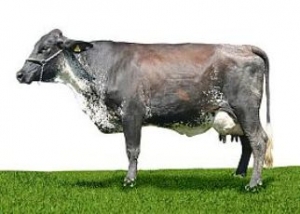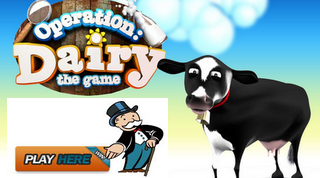Dairy in the World
Brazil develops first genomic assessment system for dairy cattle

According to Marcos Vinícius Barbosa da Silva, an Embrapa Dairy Cattle researcher, Clarifide is the result of six years of research in genomics, molecular genetics, and bioinformatics. “We have gathered what is most advanced in the knowledge of genomes and computational systems to assess the information from a chip with hundreds of thousands of data related to bovine DNA”, the scientist reports. The solution is already available in the market.
The selection of superior animals for milk production systems is made from a sample of biological material that contains the animal's cells. Collected genetic information is compared to the one available in Clarifide Girolando chip. As a result of this work, farmers receive a series of information regarding the animal, such as milk production and proteins, whether they bear genes that produce genetic disorders, reproductive capacity and other data required to have the process of herd breeding be effective.
Selection before the animal is born
Genomic assessment opens up major possibilities for herd improvement. For instance, it allows the animal to be selected before it is born. It is possible to remove a small sample (10 cells) of an embryo seven days after the in vitro fertilization and, through such few cells, analyze its entire genome. If the embryo has desirable traits, it is transferred to the (surrogate) cow that will gestate it. Otherwise it can be discarded. Besides saving time, this procedure optimizes surrogate mothers, as the cow will only gestate the best previously selected embryos.
On top of the higher reliabity of the information, the coordinator of the Girolando Genetic Improvement Program (PMGG), Marcello Cembranelli points to the reduced time length for animal assessments, with subsequent cost reduction, as Clarifide's greatest advantage. Currently, a bull's selection for the progeny test (process that indicates the best sires based on the traits of their daughters) costs about R$ 250,000. It is a long process, which can last about 10 years. Clarifide Girolando optimises it, as results are instantaneous, and it is not necessary to evaluate the quality of the following generations to identify a good sire.
The cost reduction allows smallholders and mid-sized farmers to enroll their animals in the progeny tests. Assuming that the breeder has several young bulls (potential sires) with the same level of kinship (full siblings) and the breeder only has funds to sign up a single individual for the test, comparing each of their genotypes through Clarifide Girolando will define the young bull that is most suited to the program.
“The introduction of genomic assessment in the breeding program democratizes opportunities for selection, as it allows a higher number of farmers to have access to the service”, Cembranelli declares. “There will be a leap in quality in the breeding program. That is why the Brazilian Association of Girolando Breeders invested in the research with its most precious asset: the database on production and pedigree. We are certain that the genomic assessment will be highly reliable and will be an important decision-making tool for our over 3,000 members all over the country”.
For the farmer Guillermo Marquez, from the Santa Gertrudes Farm in Uberaba, Minas Gerais, genomic assessment seems an important resource for the process of animal selection. “Clarifide Girolando has come to give us more information and help us anticipate decisions, that is, we are going to have results from the selection process earlier. And that is of utmost importance to make the necessary changes to the herd, according to the farm's work plans. It is very important so that we can evolve and have better animals”, the dairy farmer underscores.
Clarifide Girolando is the result of a public-private partnership formed by Embrapa, the Brazilian Association of Girolando Cattle Breeders and two companies from the private sector. To learn more about the program, click here.
TheCattleSite News Desk





















